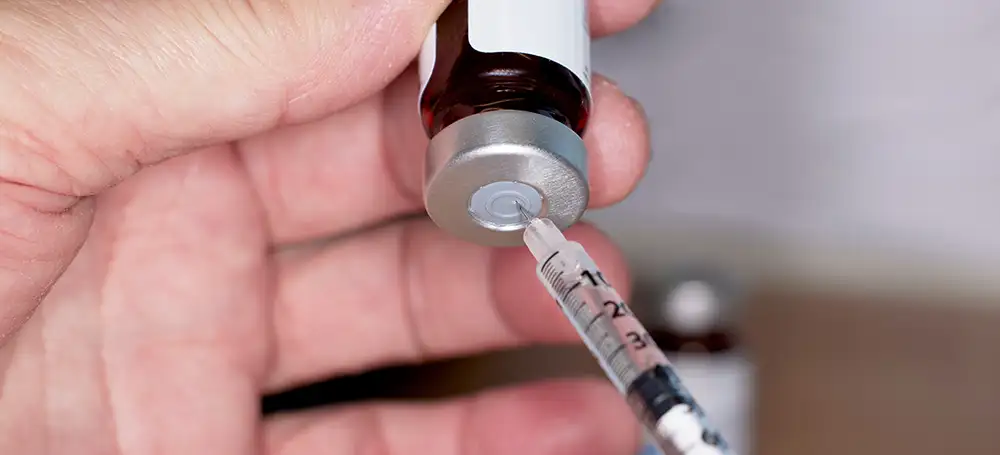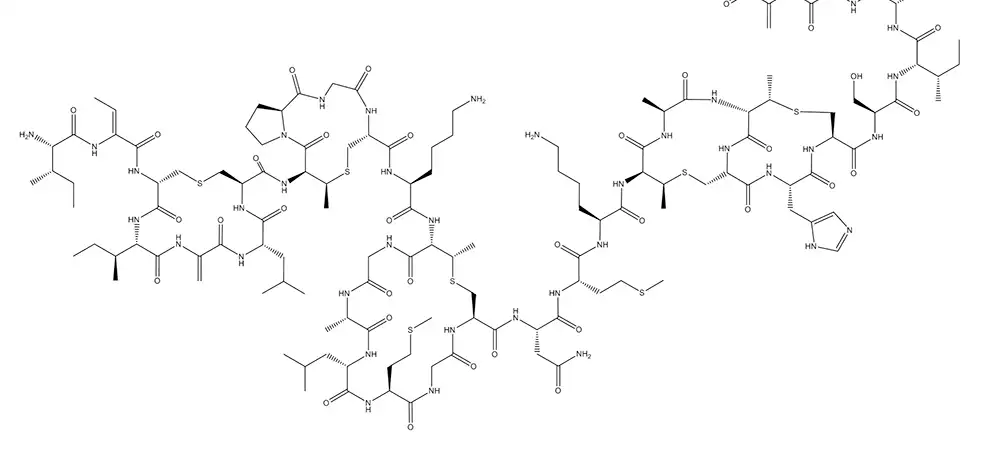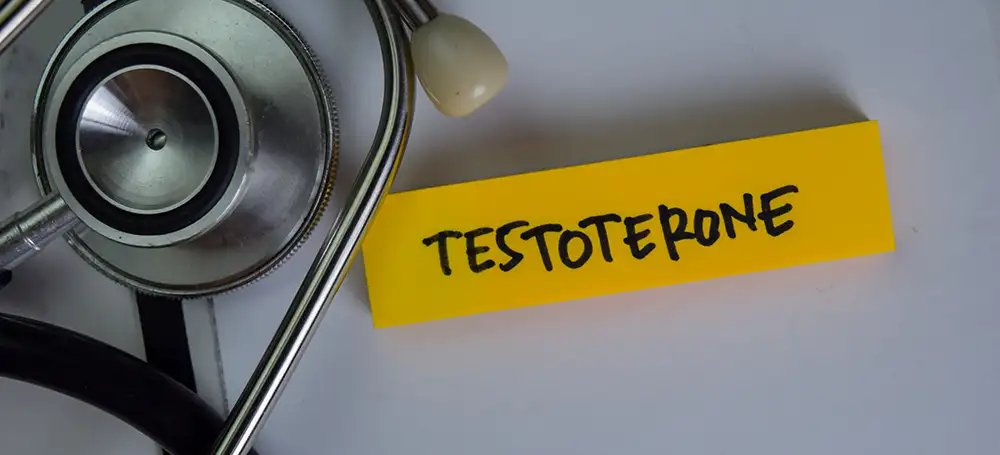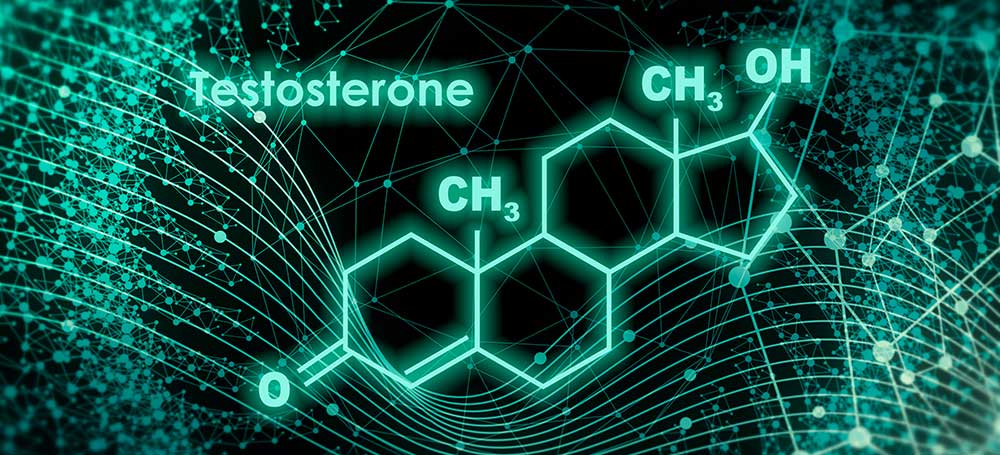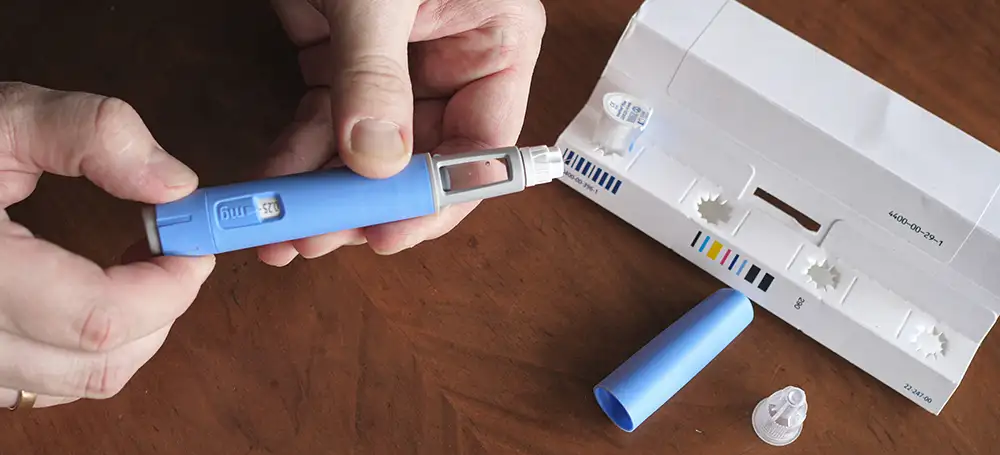When men’s testosterone levels start to decline with age, they may not be aware at first that they have a problem. Sure, they start to lose interest in sex — but when you’re busy and distracted, that just happens, right? You might notice that you’re having issues building muscle mass, even though you haven’t changed your workout routine. Maybe you just feel a bit down, or you don’t seem to have a lot of energy.
Once you become aware that all these symptoms are signs of low testosterone levels, you may start thinking about the possibility of doing something about it. Which raises the question: does testosterone therapy really work?
The short answer: Yes. Testosterone replacement therapy works. It can reverse those unpleasant symptoms that you might have thought were inevitable as you get older. To learn a little more about it, keep reading.
What Is Testosterone Replacement Therapy?
As men age, their production of testosterone starts to drop gradually, declining about 1% each year. You might be surprised to learn that this decrease begins in your 30s. Most men don’t notice the decline for some time. But by their 50s, about 10% of men have measurably low testosterone levels, with that number rising to about 25% in their 60s and 35% by the age of 80. While older men are more likely to experience testosterone deficiency, men who are overweight, those with Type 2 diabetes, and those with metabolic syndrome are more likely to be affected by it than other men of their age.
That natural decrease in testosterone results in a constellation of symptoms, including loss of muscle mass and decreased sex drive and sexual performance, and a decline in emotional well-being. Fortunately, there’s something you can do about it. Testosterone replacement therapy helps reverse the side effects of testosterone deficiency, helping you feel younger and stronger in every way.
Signs of Low Testosterone
The signs of low testosterone don’t always make themselves obvious. Often, men with low testosterone get misdiagnosed because their primary care providers simply don’t recognize how the symptoms are patterning together. If you’ve been told you have depression, low thyroid, an autoimmune disease, chronic fatigue, or anemia, but the treatments don’t seem to be helping, you may actually be facing testosterone deficiency.
Men with low testosterone levels typically present with several of the following symptoms:
- Loss of muscle mass
- Weight gain
- Irritability or mood swings
- Low energy
- Fatigue
- Poor sense of well-being
- Decreased libido, or sex drive
- Erectile dysfunction
- Difficulty concentrating
- Memory issues
- Insomnia
- Depression
If you’re experiencing some of these symptoms, it’s probably time to get your testosterone levels checked. All it takes is a simple blood test. If you’re diagnosed with low testosterone levels, you can feel that sense of relief that comes with knowing what’s going on with your body — and you can start the conversation with your doctors about how to treat it.
Does Testosterone Therapy Work? — and Is It Safe?
Men all over the world have spoken up about how testosterone replacement therapy have changed their lives. Many men often just assume that their weight gain, sexual problems, depressed mood and loss of muscle mass are an inevitable part of getting older — and all too often, their doctors don’t advise them any differently. When they begin testosterone therapy, they find their energy levels returning. They also are better able to concentrate, and they see any sexual performance issues clearing up. These men are often shocked at how thoroughly testosterone replacement therapy deals with the entire constellation of medical and well-being issues they’ve been facing.
While testosterone replacement therapy has been proven to work, it’s important to pursue it under a doctor’s supervision. Yes, it’s possible to buy testosterone supplements from some shadier sites online — but if you do so, you have no reassurance that you’re getting the right dosage or even that you’re getting what you’re paying for. Medical doctors prescribe testosterone following specific guidelines, and men’s health clinics, such as Boston Vitality, have special expertise in determining correct dosage and monitoring your response to make sure your testosterone levels and your entire body are responding well to treatment.
Testosterone replacement therapy has been approved by regulatory authorities, declaring it safe and effective for men with testosterone deficiency. When you seek treatment at a legitimate men’s health clinic, you can feel confident that your therapy is following regulatory guidelines.
Forms of Testosterone Replacement Therapy
If your doctor prescribes testosterone replacement therapy, you can choose to take it in one of several forms. These include:
- Transdermal patch: Wearing a skin patch, similar to nicotine or seasickness patches, is an easy, tidy way to take testosterone. The patch is typically applied to your upper arm, though patches that stick to your gums are also available. These patches need to be replaced and applied daily.
- Gel: Clear testosterone gel is also typically applied to the upper arm daily, with the testosterone being absorbed right through the skin. Gels also exist that can be applied in the nose.
- Injections: If you’re comfortable with needles, you might opt for testosterone injections. Your doctor’s office can teach you how to deliver these yourself, so you can keep up with the once-a-week schedule.
- Implants: Your doctor can insert testosterone pellets under the skin of your buttocks, where they’ll provide an ultra-slow release of testosterone across several months.
While testosterone pills are available, they appear to have a negative effect on the liver, so most knowledgeable physicians don’t prescribe them. Because testosterone delivered via patch, gel, injection or implant goes directly into your bloodstream, these delivery methods don’t affect the liver at all.
Your men’s health doctor will discuss all the pluses and minuses of each type of therapy with you. For example, if you have kids at home, you may want to stay away from testosterone gel, since it’s not good for children to get their hands on it. After reviewing your symptoms, your lifestyle and your preferences, your doctor can help you choose the delivery mode that’s right for you.
Benefits of Testosterone Replacement Therapy
While every man responds slightly differently to testosterone replacement therapy, you can expect to see some of those symptoms listed above start to reverse. You’re likely to experience increased energy and a boosted sex drive. Your performance in bed should become more reliable. Most men also experience an increase in muscle mass along with weight loss, especially around the belly. Some of the physical benefits of testosterone replacement therapy aren’t obvious, such as an increase in bone density, but they are nonetheless real.
Men also tend to experience an improvement in their mood, with less irritability and fewer mood swings. If you’ve been experiencing fatigue and depression, those should abate as well. Some men experience mild effects from supplemental testosterone, while others find that their lives are turned upside-down (in a good way).
What to Expect During Testosterone Replacement Therapy
It’s important to recognize that testosterone replacement therapy doesn’t produce overnight results. The process is gradual because your body needs time to rebuild this essential hormone. Even if you don’t see results early on in your treatment, you should keep going with it, because your testosterone levels will drop again as soon as you stop the therapy.
Some men may start to see results fairly quickly. Within a week or two, you may find that you’re sleeping better and waking up feeling more rested and energetic. Men who are coping with erectile dysfunction and lowered sex drive may start to notice a change (including a return of morning erections) within 3 weeks or so. By the end of the first month, you can expect a level of mental clarity you haven’t experienced in a while.
Moving into months 2 and 3, look to see continuing levels of increased energy. Your workouts will feel like less of a drain on your energy, and you’ll start to see increased muscle healing. Your recovery time after strenuous exercise will also be lessened. Your improved hormone levels will also start to have an effect on the inside of your body, with improvements to your cholesterol and triglyceride levels, decreased blood pressure, improved glycemic numbers, and greater bone density and strength.
You can expect continued improvement into your sixth month of treatment. Any insomnia should be gone, and mood swings, depression and mental fogginess should also improve. Most men feel especially strong and confident as they reach the 6-month point and achieve their wellness goals.
Is Testosterone Replacement Therapy Right for Me?
Many men are shocked to realize that their symptoms of decreased libido, weight gain and fatigue have a traceable and treatable medical cause. If you have your testosterone levels tested and learn that they’re lower than normal, then yes, testosterone replacement therapy may be right for you.
There are a handful of caveats, however. If you’ve experienced prostate or breast cancer, severe urinary tract issues, significant heart problems, or obstructive sleep apnea, your doctor will probably warn against pursuing testosterone replacement therapy.
Testosterone Replacement Therapy for Men in Boston
Because the symptoms of testosterone replacement therapy make themselves known so gradually, many men overlook the decline they’re experiencing in their sex lives or their energy levels. Many men in Boston may only seek guidance from a medical expert when they experience something they can’t ignore, such as erectile dysfunction or perhaps a broken bone because of the loss of bone density.
The truth is that you don’t have to accept the loss of vigor and vitality as an inevitable part of aging. At Boston Vitality, we are dedicated to helping men improve their health and well-being by optimizing their hormones. Why just assume that getting older means living a tired, sexless life when there’s something you can do about it?
Choosing the right men’s health care provider is key to the treatment you receive on every level. When you bring your concerns to experts like Dr. Michael Zachareas, the world-class, board-certified urologist who’s the lead practitioner at Boston Vitality, you know you’re getting the right advice. You know you’re working with a team that stays on the cutting edge of advancements in hormonal health. We make sure you get the personalized treatment you deserve. That’s because no type of hormone therapy, including testosterone replacement therapy, is a one-size-fits-all type of medical care.
If you’re concerned about what you’ve always thought were the symptoms of aging, why not take one small step to see whether there’s a medical (hormonal) cause behind those symptoms? One quick blood test could determine whether or not you’re a candidate for testosterone replacement therapy. That’s one small step to getting rid of mental fog, sleep problems, mood swings and weight gain — and a step toward improving your sex life, muscle mass and energy levels. Contact us today at Boston Vitality to see if we can make the difference you’ve been looking for.




